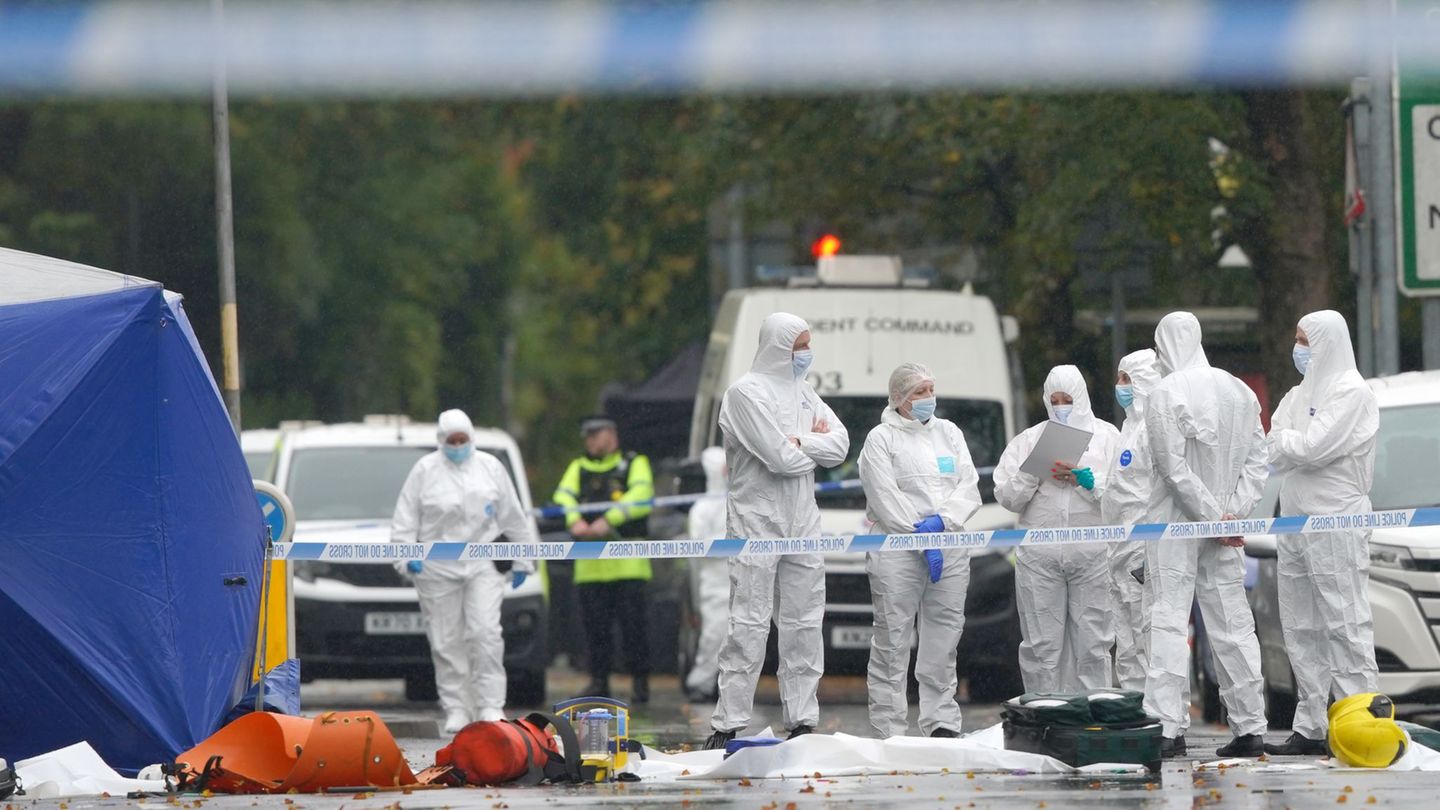Image: HASSAN AYADI (AFP)
According to UN estimates, however, the death toll could rise to more than 50,000. In the meantime, the Austrian soldiers were able to resume their aid mission in the crisis area under the protection of the Turkish army. The operation was interrupted on Saturday due to safety concerns.
While the hope of rescuing living men, women and children is dwindling, 29,605 deaths have been reported in Turkey alone, the state news agency Anadolu Ajansi reported on Sunday, citing the civil protection agency Afad. 3,575 deaths were recently reported from Syria. Almost 80,300 injuries have been registered so far.
UN Emergency Relief Coordinator Martin Griffiths told Sky News on Saturday during a visit to Turkey’s earthquake region that an accurate estimate of the number of people who died was still difficult. The number of victims will certainly “double or more”.
Shootout between hostile groups
The difficult security situation on the spot further slowed down the rescue operation by various aid groups on Saturday. The Austrian soldiers – as well as German and Hungarian helpers – had to temporarily interrupt their deployment because the work had become too dangerous. Increasing aggression between groups in Turkey – including exchanges of fire – would have made this decision necessary.
In the meantime, the Austrians were able to resume their work. “The Turkish security forces create a safe environment for us,” Lieutenant Colonel Pierre Kugelweis told APA on Sunday morning. On Saturday, the helpers were still active on two missions, some of them into the night, from the afternoon to support local aid groups.
A 7.7 magnitude tremor shook the border area early Monday morning, followed by another 7.6 magnitude tremor at noon. Since then, there have been more than 2,000 aftershocks in the region by Saturday, according to the Turkish civil protection authority Afad. Many people lost their homes: According to Turkish President Recep Tayyip Erdogan, more than 1.5 million people have now sought shelter in tents, hotels or public emergency shelters.
Turkish Vice-President Oktay said prosecutors had set up departments to investigate earthquake-related crimes in 10 provinces affected by the earthquake, on orders from the Ministry of Justice. 131 people were identified who were responsible for buildings that collapsed. Arrest warrants had been issued against 113 others. Another arrest was made on Sunday by a contractor believed to be in charge of overseeing the construction of numerous collapsed buildings in Adiyaman. He was caught with his wife at Istanbul Airport, the DHA news agency reported on Sunday. The two wanted to flee to Georgia with a large amount of cash.
Turkish City Minister Murat Kurum said that almost 172,000 buildings in ten provinces have now been inspected. It was found that around 25,000 had been badly damaged or had to be demolished urgently.
Nevertheless, there have always been glimmers of hope in the rescues. Almost a week after the earthquake, lives were still being saved. In Antakya, for example, a five-month-old baby was retrieved alive from the rubble after 134 hours, reported the Turkish state television station TRT. TV pictures showed how a helper was lowered headlong into a meter-deep hole to get to the baby. The visibly exhausted child was handed over to paramedics after being freed.
The risk of disease is now also increasing in the affected areas. According to the Emergency WASH (Water Sanitation Hygiene) expert of the Austrian Red Cross, Georg Ecker, the water supply and disposal system in the earthquake area is severely affected. Therefore, people depend on surface water – such as rivers or lakes – which in turn are polluted by feces because people have no sanitation due to the destroyed buildings. In addition, groundwater systems could be shifted or interrupted due to the tremors, says Ecker. There is therefore also a risk of contamination of groundwater. If people have no alternative but to drink contaminated water, this can quickly lead to illnesses such as diarrhoea. There have been outbreaks of cholera in Syria for a long time and it could be that the situation deteriorates due to the poor water and hygiene conditions or there is a risk that cholera will also spread to Turkey due to the border area.
Source: Nachrichten




